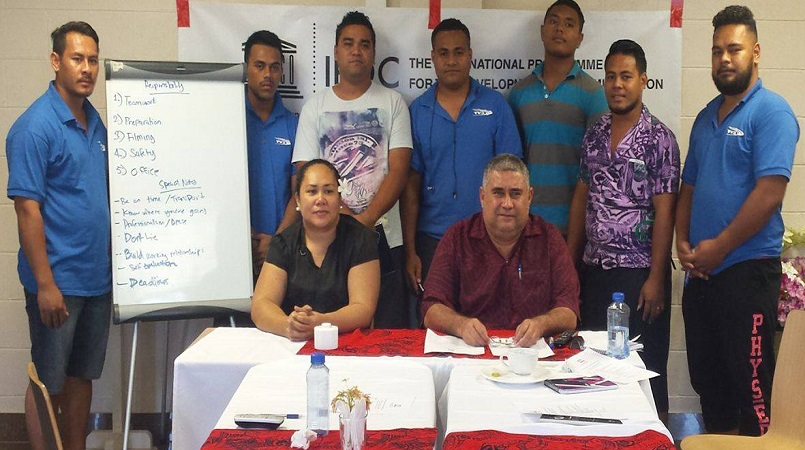
Fifteen camera operators participated in a special operators’ workshop in Samoa over the weekend that was made possible under a grant from UNESCO.
WT Media owner and workshop host Rudy Bartley spent an entire day with working and learning camera operators, refreshing their knowledge on both the technical and ethical side of their work.
The program was made possible with the assistance of UNESCO. Acting director, Dr. Akatsuki Takahashi called the training a must not only to refresh but to improve skills and broaden area of expertise for cameramen.
“I have a friend who works a lot with cameras. He doesn’t take much videos like you guys, but he captures amazing things with his work, and those things show thousands of messages,” she said.
“It is important for cameramen to be properly trained and be allowed to grow, because you tell the story. Knowing how to best tell a story with your work is crucial to communication,” she added.
“UNESCO and I are glad to be a part of this initiative, and hope at the end of the day it will be very successful,” she said.
With the formalities out of the way, it was time to get down to business.
Samoan media and mostly camera operators are made up of experienced and new workers. Some of these workers have held a camera for only a few weeks. So a glossary was made, with all the technical terms jargon being explored by the group.
The glossary would serve as a part of a bigger booklet for camera operators.
“Working as a cameraman in Samoa is all about ethics too, you have to have standard practices and ethics to guide your work. Not necessarily rules, because you would hardly listen to them,” said Bartley.
A two-part ethics guide was prepared by the participants of the program, respectively the Guidelines and the Do’s and Don’ts of the job.
The Head of Multimedia Department for NUS Tuifao Tumua said, “Even when you work together, you have to understand that that is your boss, you must listen to the reporter because they’re the ones who tell the story.”
“You as the cameraman have to make sure you are well prepared to film what you are going to film, especially sensitive cases where you may need permission, so make sure you know where youre going and whether you may need permission to go there,” said Bartley.
Even safety while working has been emphasized by the training.
“It’s always safety first. If you know that the environment you’re in isn’t safe anymore, it’s best to get out than to get hurt trying to get the right film shot,” said Mr. Tumua.
“Its always good to double check, so make sure you check at the office if your audio is working well just in case you missed something out and it might ruin the story,” said Bartley.
The workshop has attracted all media outlets to bring their camera operators and has received great reviews from some of the longest working camera operators jn the country.
“It’s always good to get a refresher course like this for me. Today has been a success and Ive managed to go over things I missed out on over the years of working as a cameraman, Ive kind of dropped some of these,” said John Sio of the NUS Multimedia.
“The codes of practices we put down has highlight a way for me to operate and do my work throughout. Its good to learn new things, while being able to have this guideline in ensuring Im doing the best possible job,” said Saitofiga Amituanai of TV3.
UNESCO also commented at the clonclusion of the training thanking Mr. Bartley and the participants for taking the time to develop the skills in camera operating.
“Your work as camera operators in important in Samoa, you are telling the story by your pictures, and your ethics tell a story about you as well. So a big faamalo to you guys on today’s training, it was good to see it all come together,” said Aterina Samasoni of UNESCO.
The workshop is under the UNESCO development program for communication.
